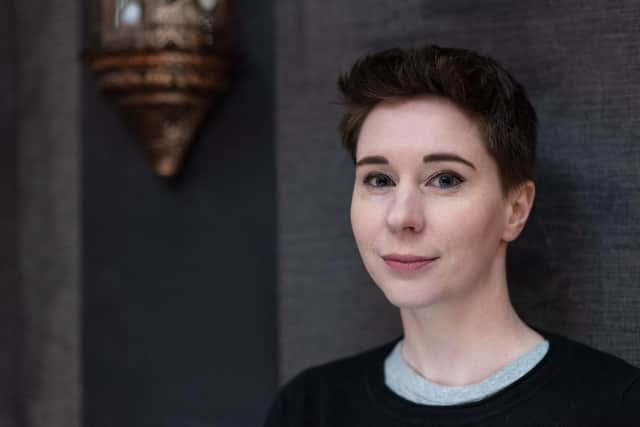Book reviews: Home, by Cailean Steed | The Silence Project, by Carole Hailey
This is a somewhat peculiar phenomenon. In the past few years I have reviewed non-fiction accounts of growing up and leaving what might be termed cults: works by Ali Millar, Kit de Waal, David Collard and Ewan Morrison. These two novels both involve female protagonists who are involved with manipulative and mendacious entities. In some ways this is not new – after all, Michel Houellebecq wrote The Possibility Of An Island about the Raelians and one might make the case that JG Ballard’s late works, such as Cocaine Nights, Super-Cannes, Millennium People and Kingdom Come were all explorations of isolationist, violent and self-serving communities. He was always ahead of the curve, old JG.
Both these novels are page-turners, well-written and interesting. They are not at all bad novels, but I am unsure as to whether they are “set the heather alight” novels. That said, both easily passed the taste test in that I did not resent having read either of them. Moreover, the preponderance of such books makes me ponder, and any book that makes you think is a de facto good thing. That they have startlingly similar conclusions about the cultic is passing curious.
Advertisement
Hide AdCailean Steed’s novel is the more obviously “genre” take. The cover of my proof does the back of the beer mat pitch: “One: My Name is Zoe. Two I am here to rescue my sister Amy”. Three: Nothing anyone says here is true”. Only #3 is true because Zoe isn’t called Zoe for a start. She grew up as Sister Catherine with “the Children” in “Home” on a gated compound in the Highlands. The novel ping-pongs between chapters in the “Then” and the “Now”, although Now inevitably involves thinking about the past, and the Then is shrouded in what is being hidden. Zoe, free from the Children, is visited by the “Hand of God”, her former mentor, who lures her back with the promise of seeing her sister, who also escaped, but returned, and is now married to the aloof “Father”.


The shadow of The Handmaid’s Tale falls heavily on this novel, as it would with any book about women in an (albeit shabby) theocratic autocracy, although Home is pacier and more plot driven. It is unostentatious about gender identity: under the Hand’s tutelage she is an “it”, neither male nor female, and she had a relationship with a woman on leaving. There are shades of Lyra Belacqua or Arya Stark about Zoe – it is, I suppose, deliberate, that her name means “life”, and the Hand is a pleasingly ambiguous character: part psychopath, part Reformer, part Machiavel, part Justified Sinner. It is a shame that the plot necessitates him to implode into Bad Guy.
The Silence Project has a more intriguing premise. On Emilia’s 13th birthday her mother decided to stop speaking. From this spawns a political movement, where people are encouraged to, basically, shut up and listen. At its outset it is a kind of Greenham Common act of protest; but it morphs into something rather different after “the Event”. Emilia was a witness to her mother’s final act of defiance: she, along with 21,000 other women, set themselves on fire on Hallowe’en, the ultimate act of silencing. This novel also has a double structure, although here it is a diptych in that we have “Before the Avent” and then the aftermath. Emilia eventually joins the Community and sees how it is becoming corporatised and compromised, which leads her to publish her mother’s notebooks. The Silence Project makes copious use of faux-citations and pseudo-references, which is a nice game and does not detract too much from the novel’s purpose.
Both books are worth reading. But what do we learn about this new fascination with cults and women? In The Silence Project, Hailey says that “Humanity, it seemed, was looking for a new direction and believed the Community would provide it. In the post-Event aftermath, millions of people flocked to join, adding their voices to the demands that their politicians, their armies and their enemies stop talking and start listening”. In Steed’s book there is a non-existent online article with the statement “Fringe groups which attract people searching for meaning and belonging are nothing new”, going on to diagnose “economic distress”, “top-heavy work-life balance”, “a simple and idyllic communal country lifestyle” and “rapidly changing cultural landscapes with swift cancellation for those not fluent in woke-ese”. I think these are acute analyses of why we feel disorientated, and Steed is particularly good at Zoe’s bemusement at things such as mobile phones. Hailey is better on the pernicious nature of bureaucracy. For myself, I go back to St Augustine, not a man unacquainted with anger, arrogance and lust, but he did still write “our hearts are restless until they find their rest in you”.
In some ways both these books are both stentorian and minatory. There are sellers of snake-oil everywhere, and it is usually a man who is brewing it up. If you don’t believe that cults are real, re-watch the footage of a mob storming the Capitol on the whisper of a man who will not allow himself to be contradicted.
Home, by Cailean Steed, Raven Books, £14.99. The Silence Project, by Carole Hailey, Corvus, £16.99.